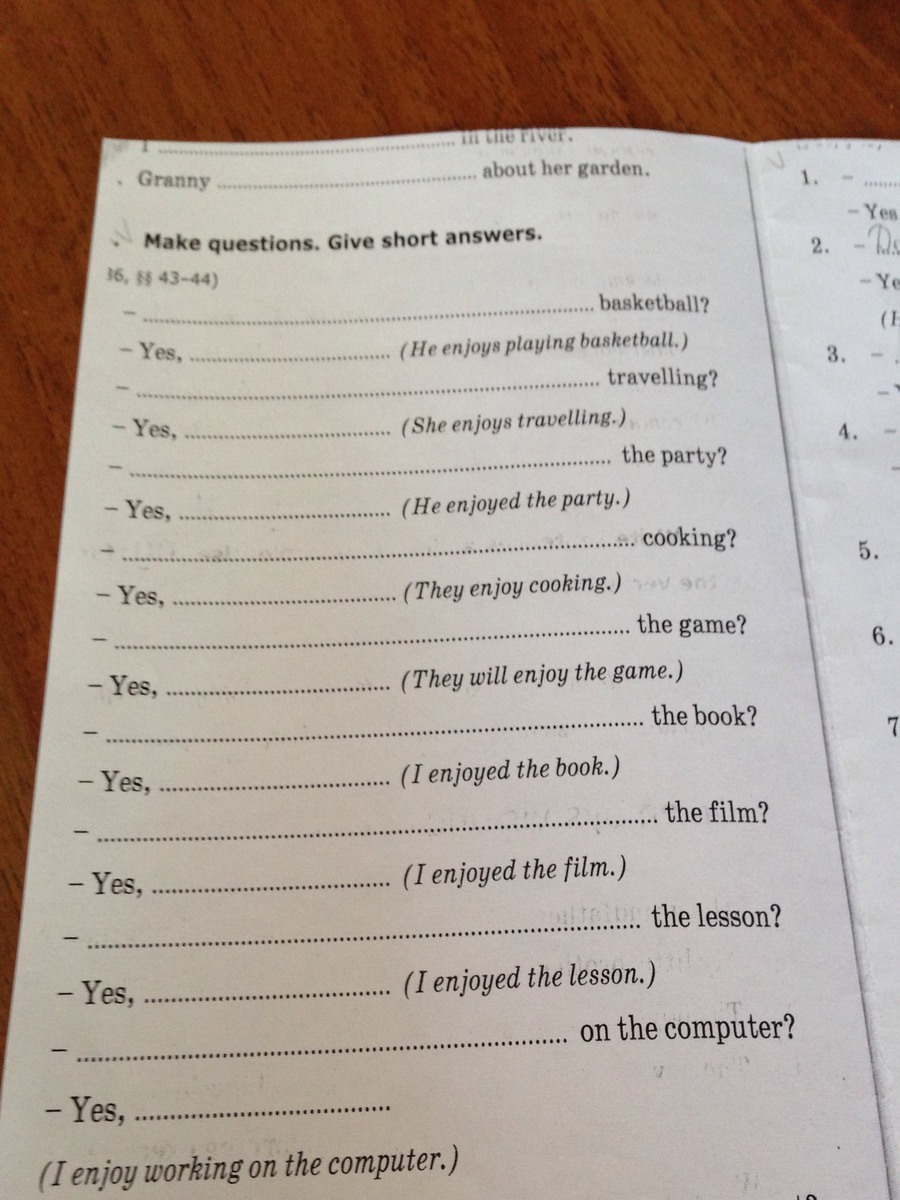Предмет: Английский язык,
автор: Закатоомола
Помогите с Английским, вот фото,.
Приложения:

Ответы
Автор ответа:
1
He like play basketball?-Yes he enjoys playing basketball.
She like travelling?-yes,she enjoys travelling.
He went to the party?-yes,enjoyed the party.
they like cooking?-yes,they enjoy cooking
they will play the game?-yes,they will enjoy the game.
You read(читается как рэд) the book?-yes,i enjoyed the book.
You saw(читается как соо)the film?-yes,i enjoyed the film.
You had the lesson?-yes,i enjoyed the lesson.
You enjoy working on the computer?-yes,I enjoy working on thr computer.
She like travelling?-yes,she enjoys travelling.
He went to the party?-yes,enjoyed the party.
they like cooking?-yes,they enjoy cooking
they will play the game?-yes,they will enjoy the game.
You read(читается как рэд) the book?-yes,i enjoyed the book.
You saw(читается как соо)the film?-yes,i enjoyed the film.
You had the lesson?-yes,i enjoyed the lesson.
You enjoy working on the computer?-yes,I enjoy working on thr computer.
suhodoliva:
это не верно
Автор ответа:
1
does he enjoy playng basketball?
yes he does
does she enjoy travelling?
yes she does
did he enjoy the party?
yes he did
do they enjoy cooking
yes they do
will they enjoy the game
yes they will
did i enjoy the book?
yes i did
did i enjoy the film?
yes i did
did i enjoy the lesson?
yes i did
do i enjoy working on the computer?
yes i do
yes he does
does she enjoy travelling?
yes she does
did he enjoy the party?
yes he did
do they enjoy cooking
yes they do
will they enjoy the game
yes they will
did i enjoy the book?
yes i did
did i enjoy the film?
yes i did
did i enjoy the lesson?
yes i did
do i enjoy working on the computer?
yes i do
Похожие вопросы
Предмет: Русский язык,
автор: Nuruk04
Предмет: Русский язык,
автор: Kim21183
Предмет: Қазақ тiлi,
автор: миша741
Предмет: Английский язык,
автор: КвайГонн1993